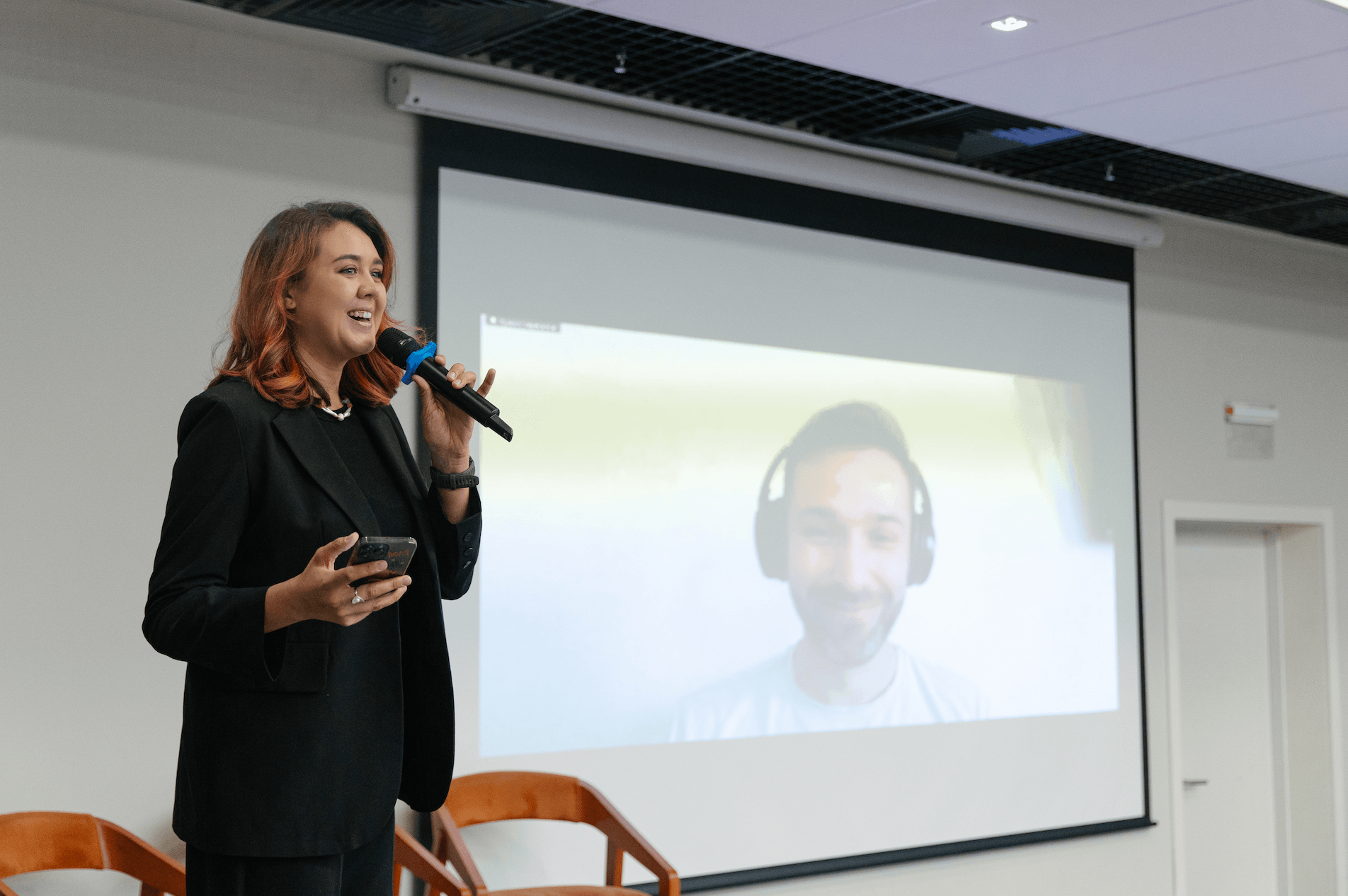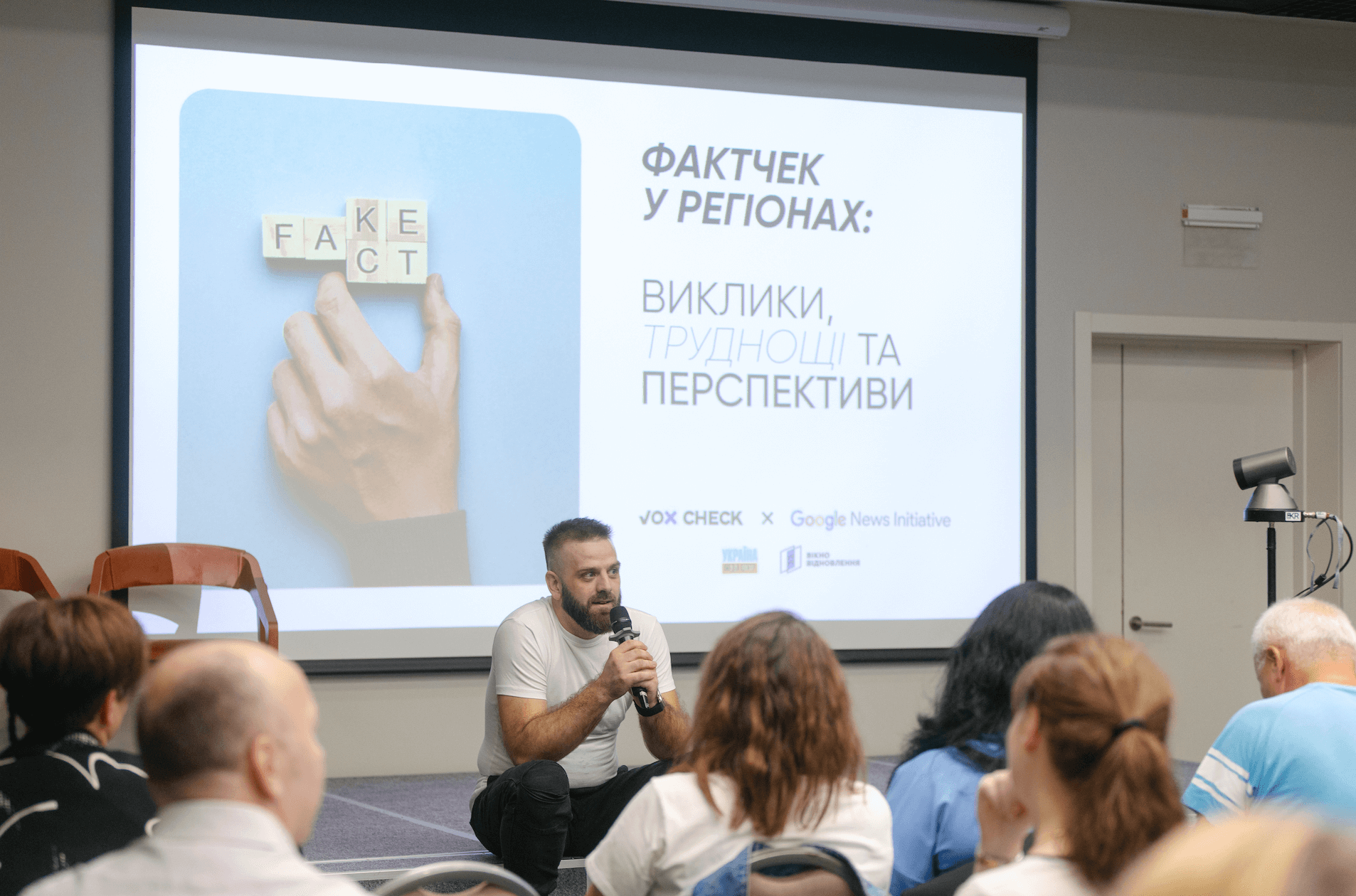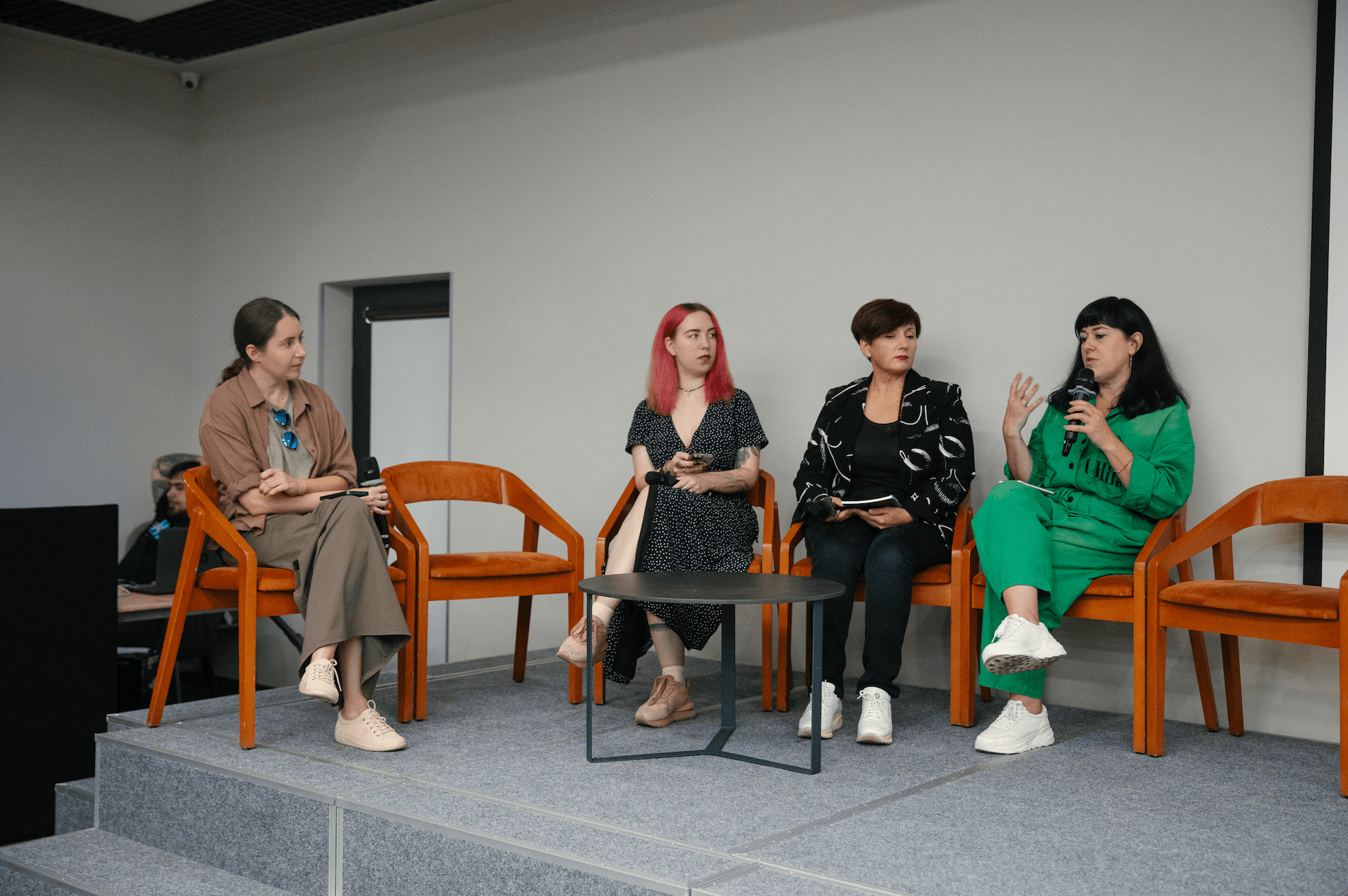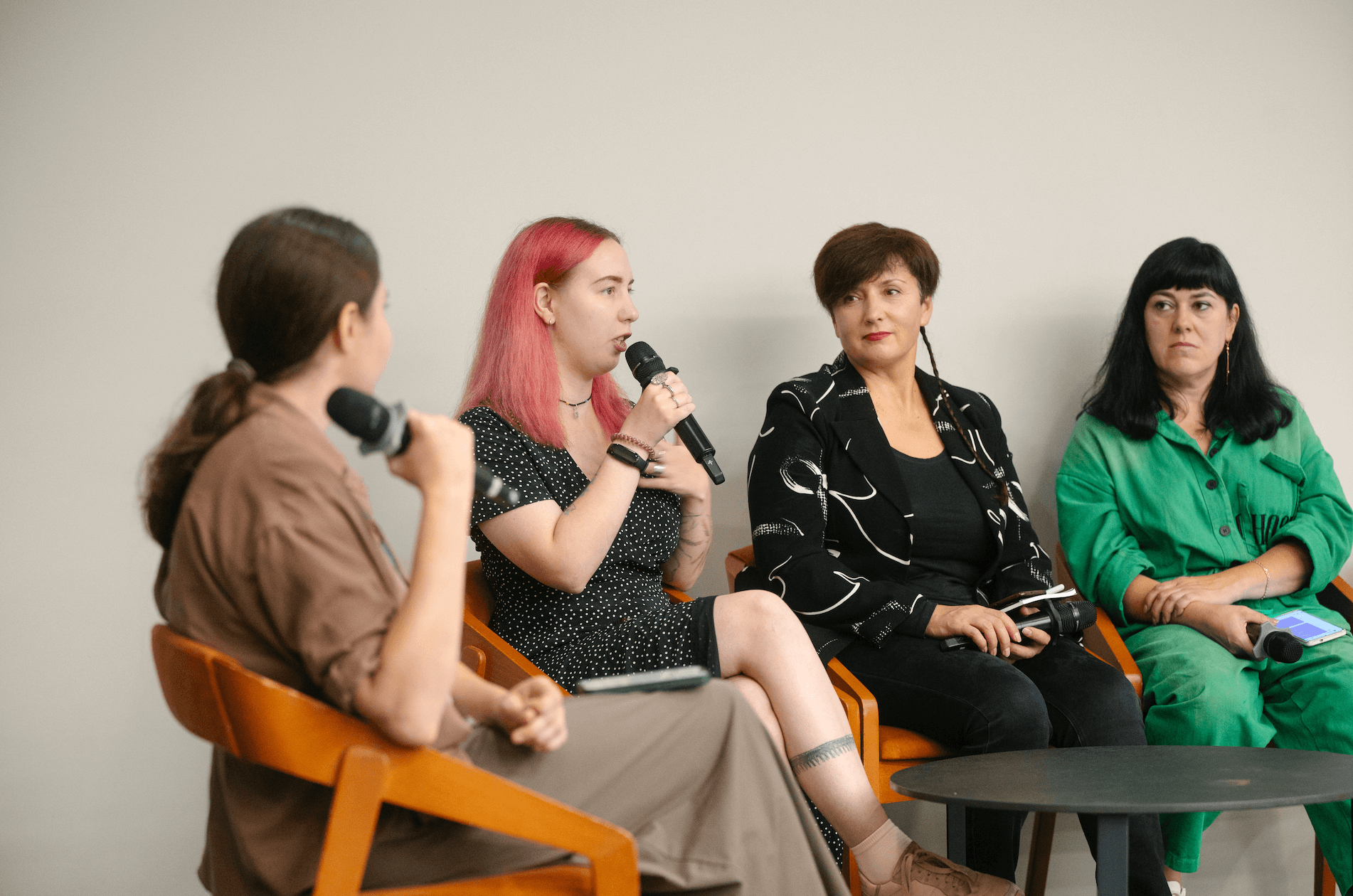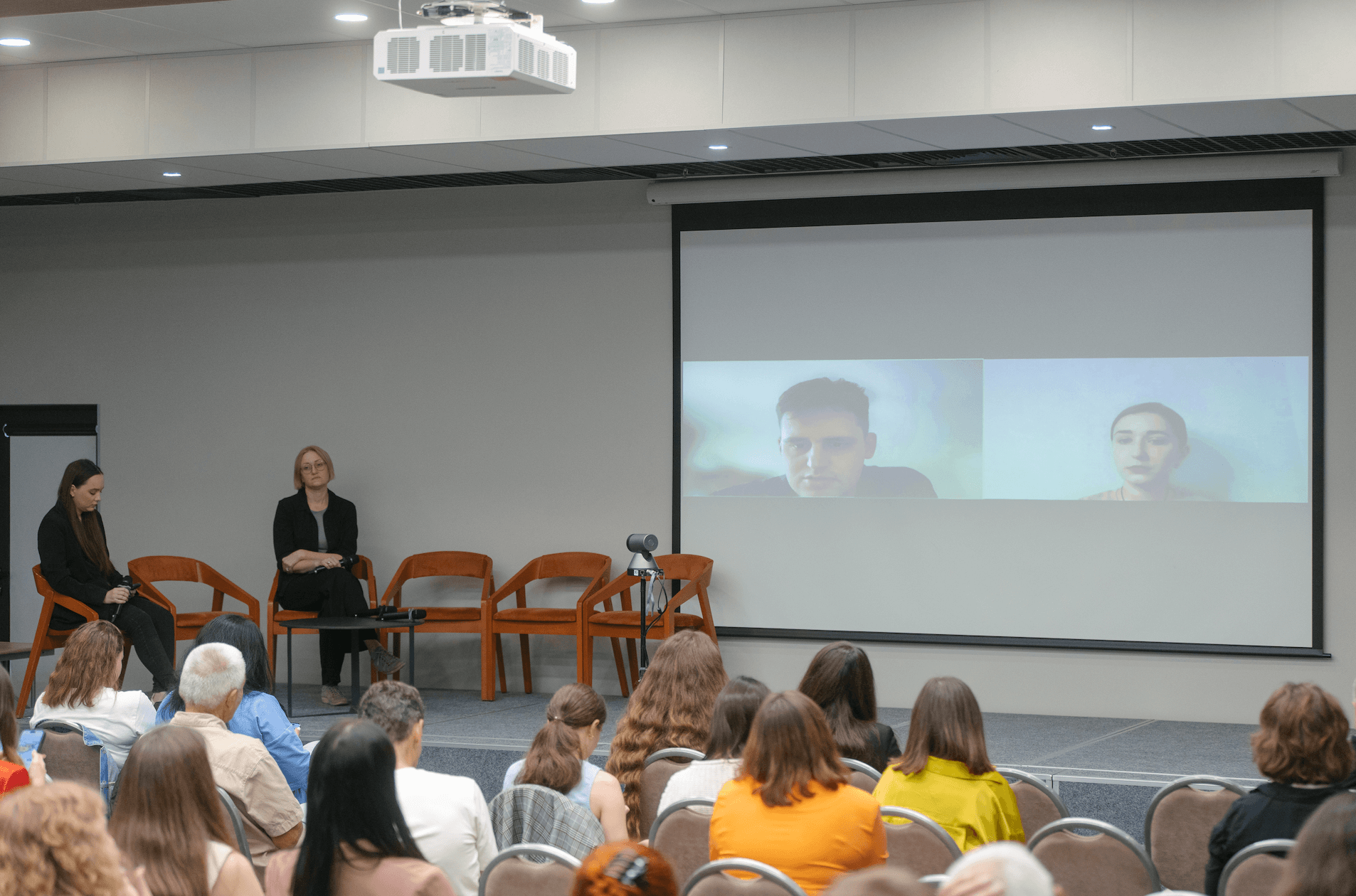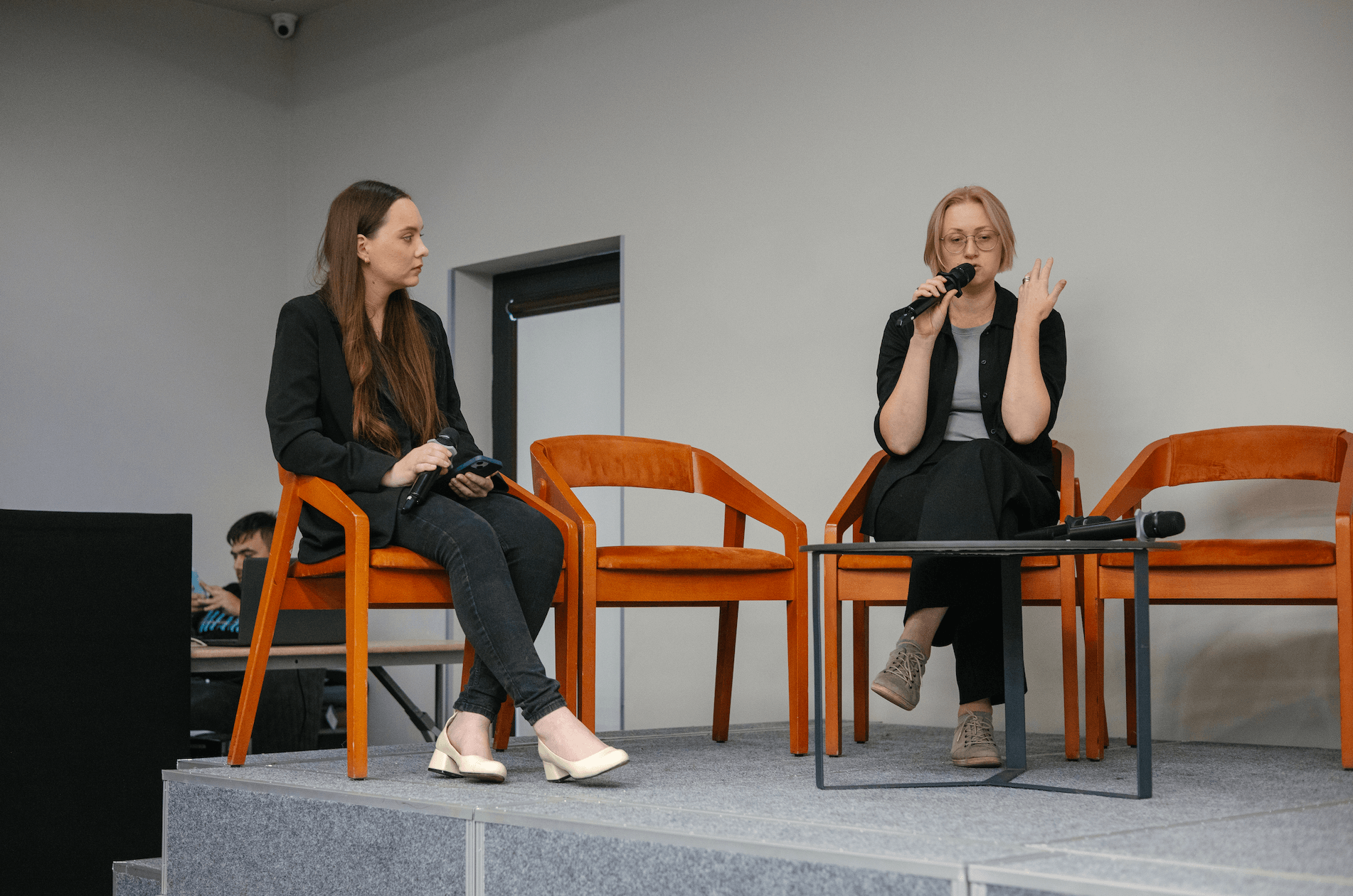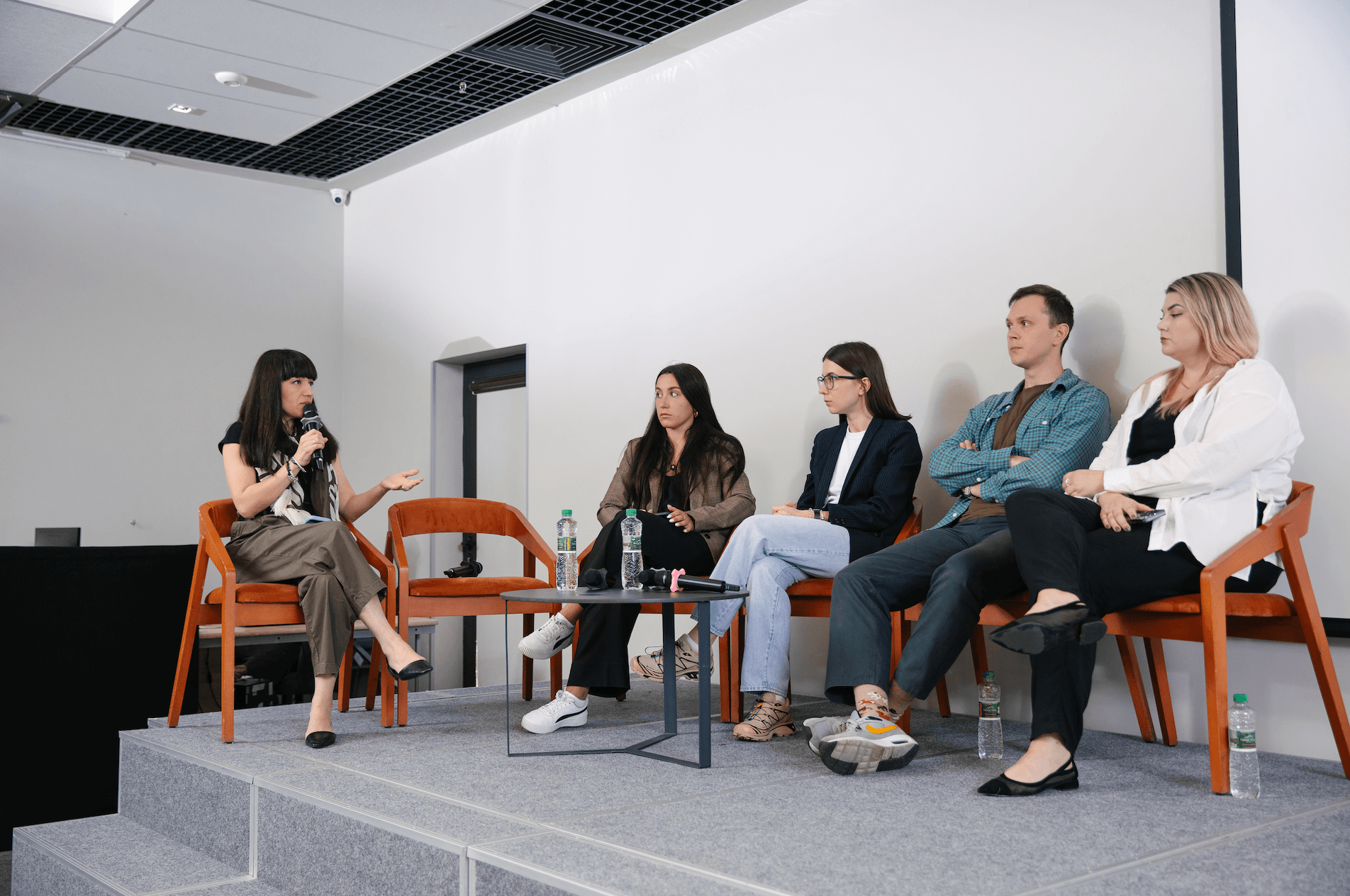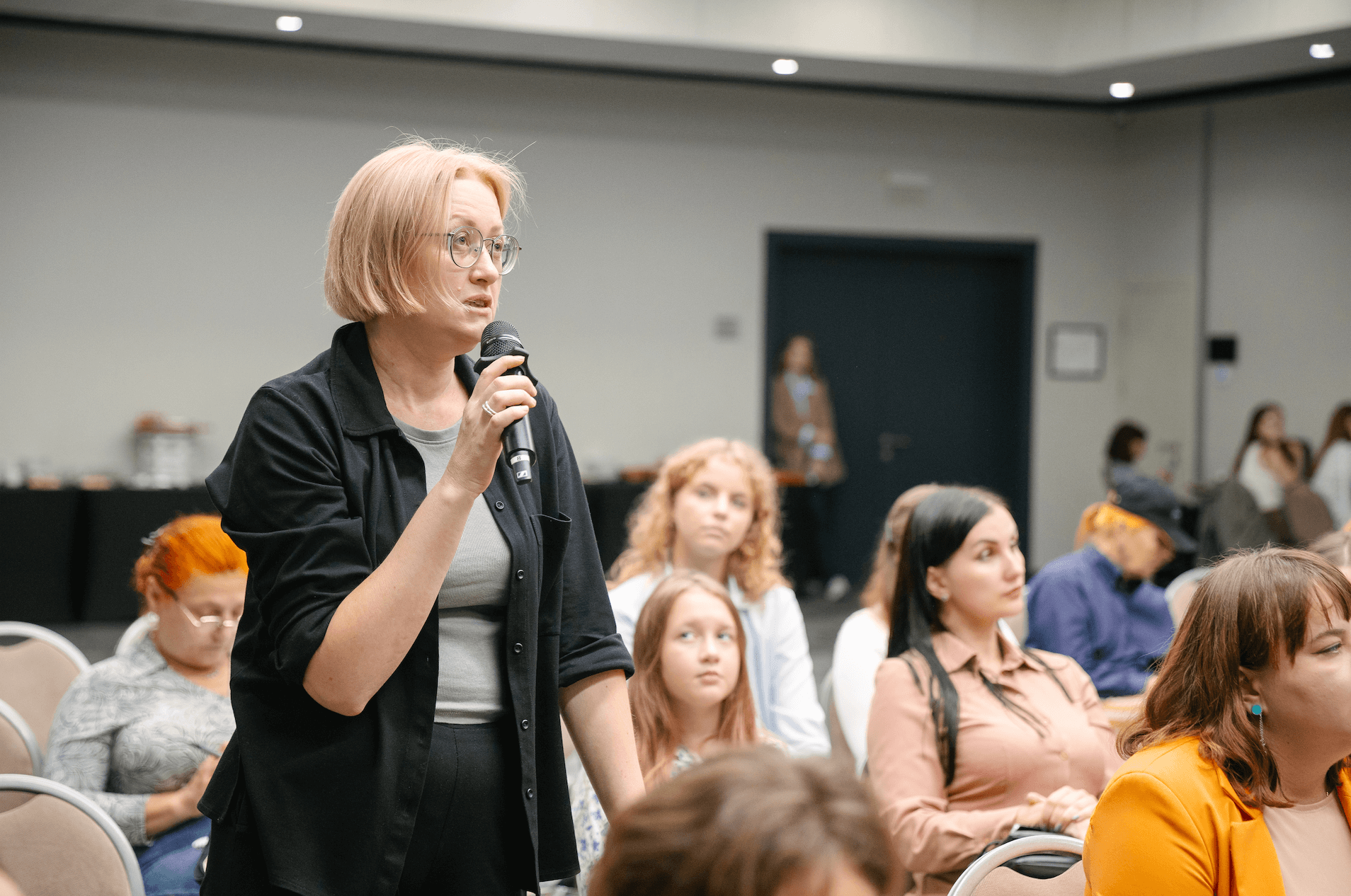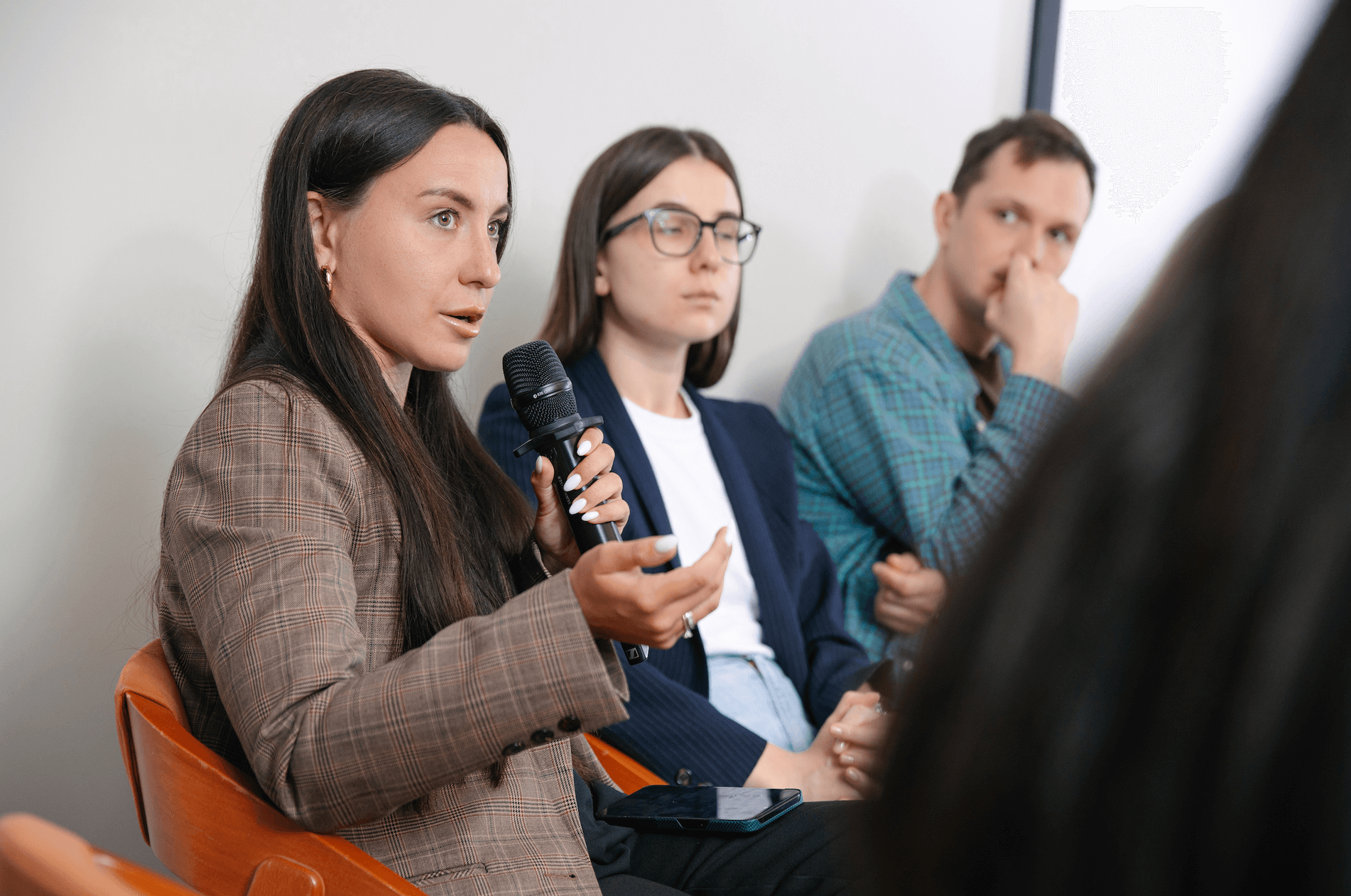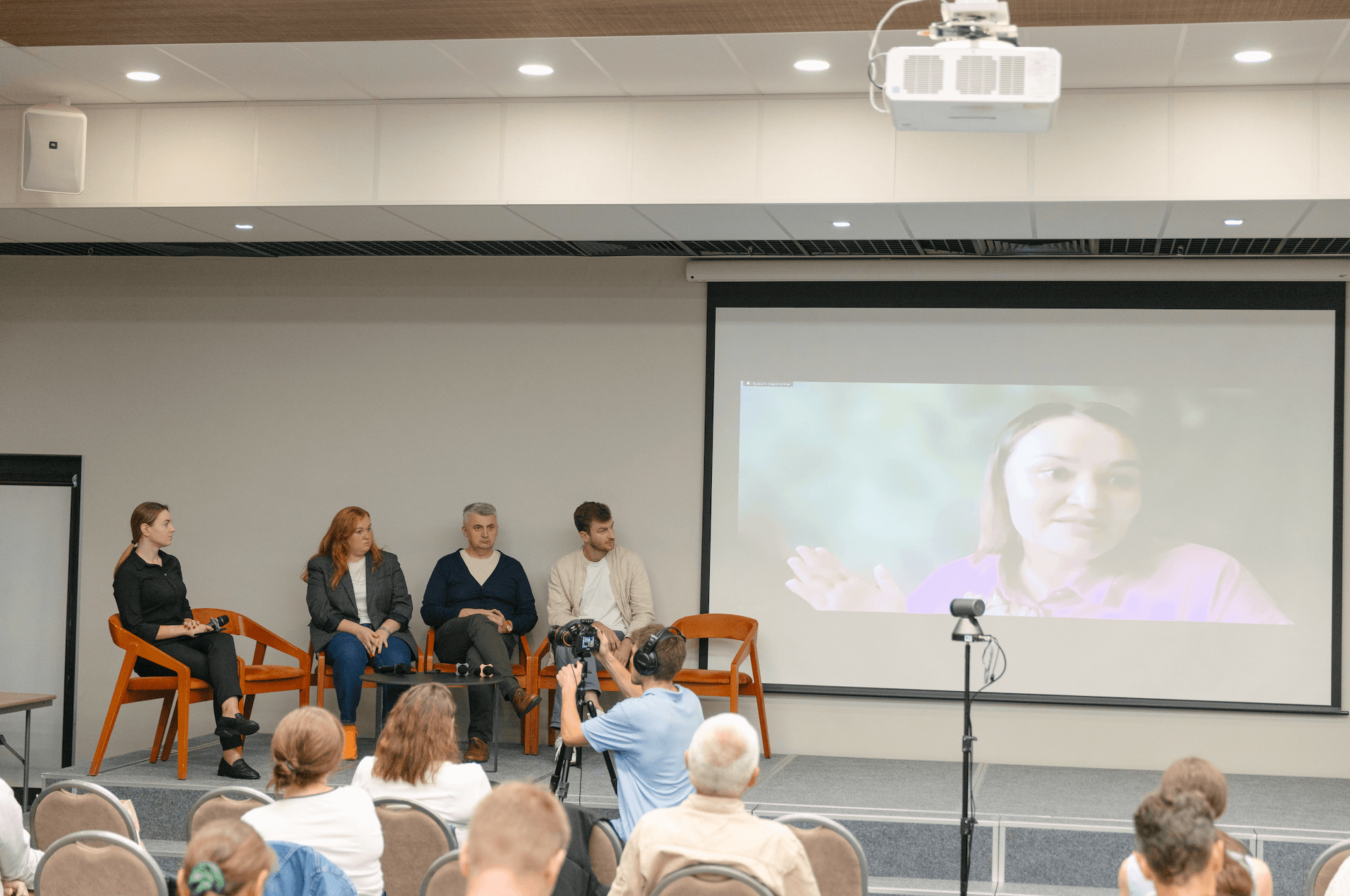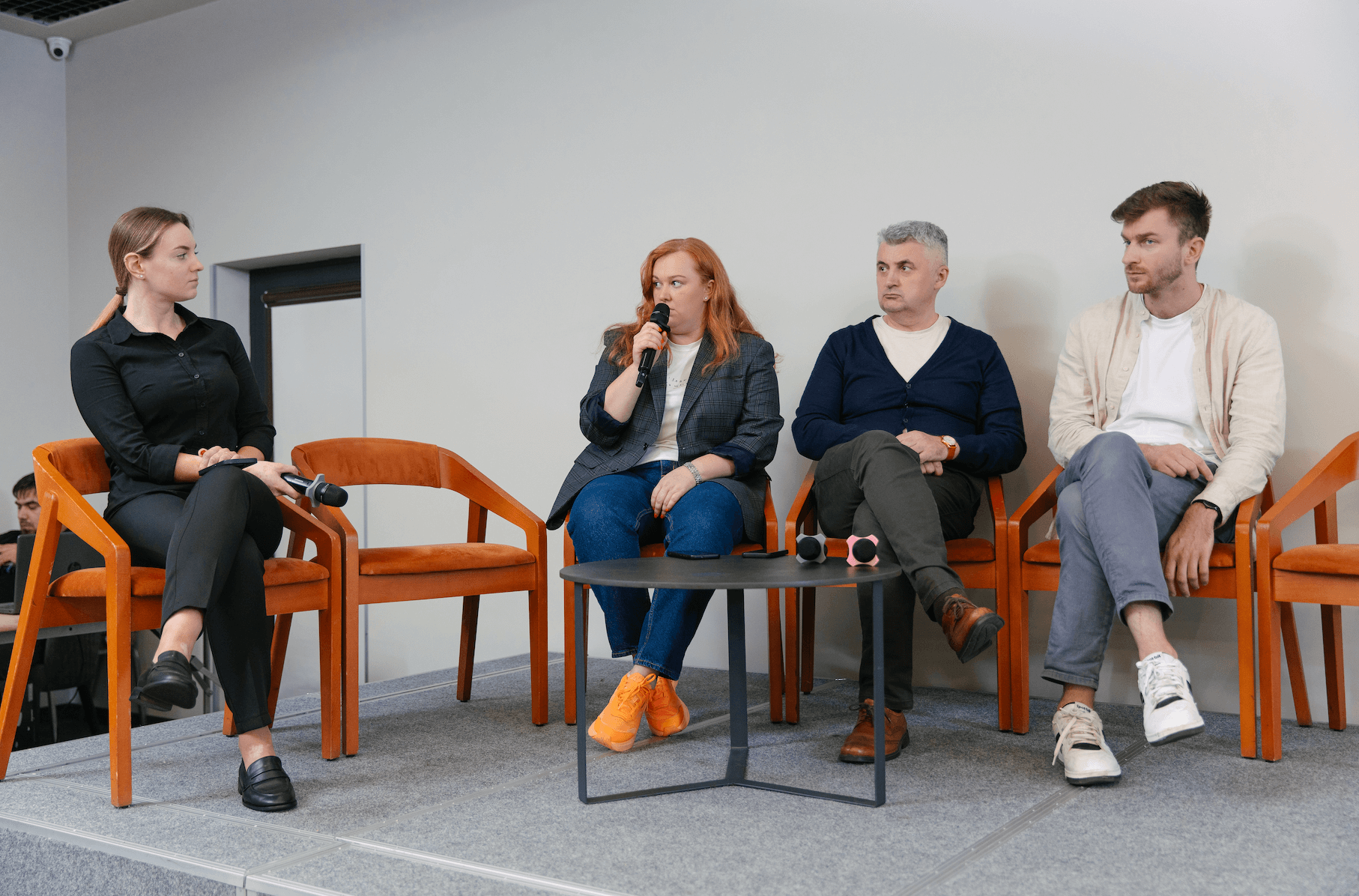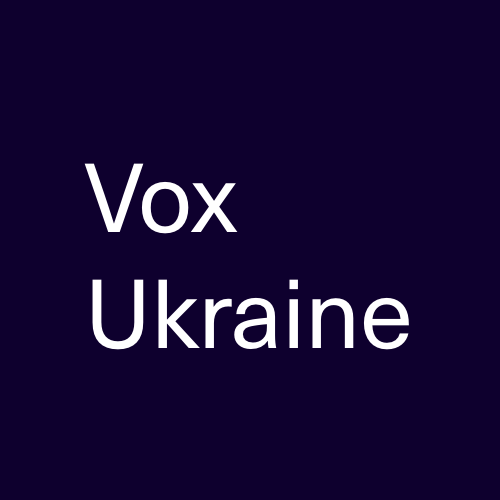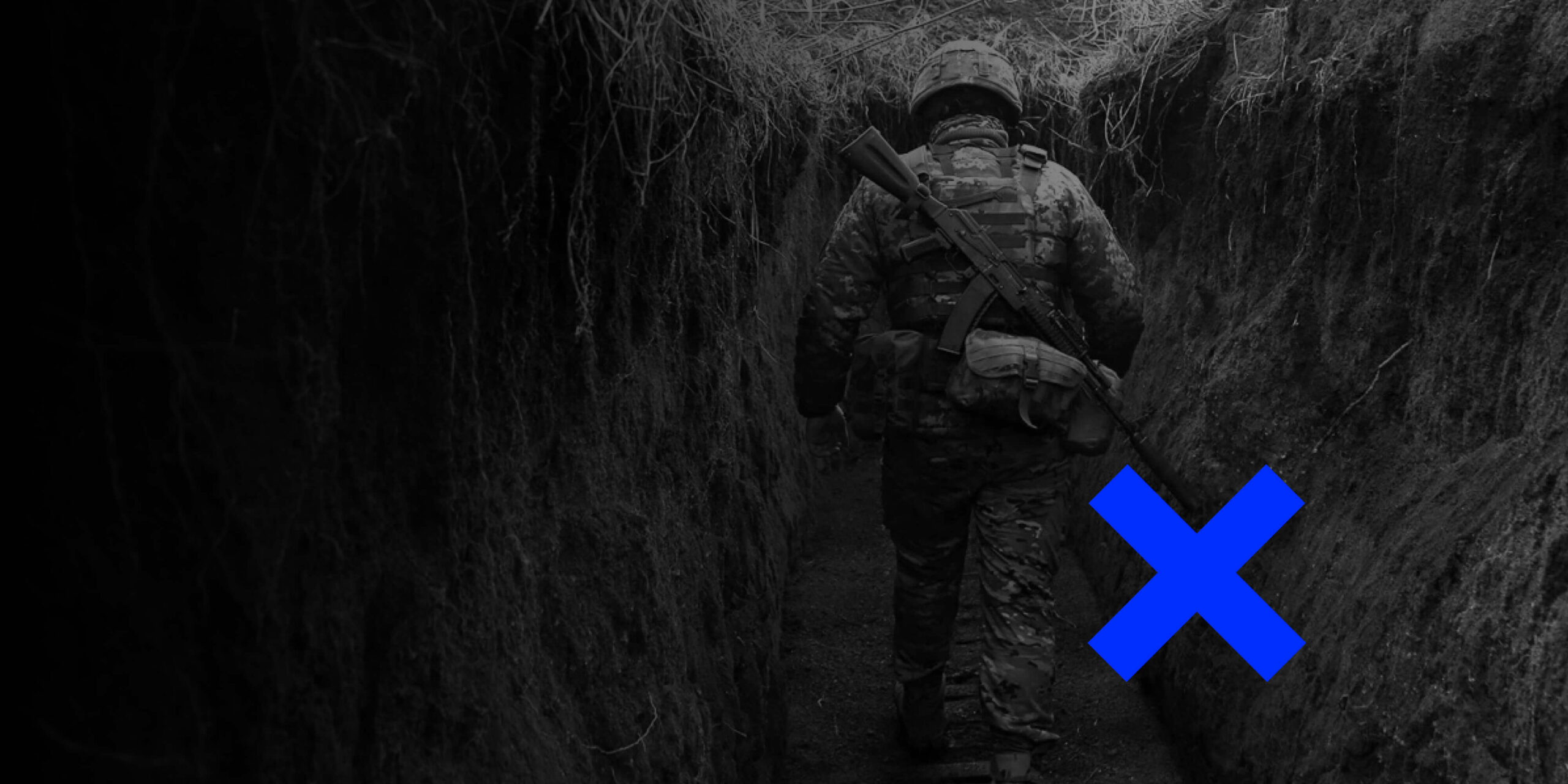On September 27, 2024, a conference for local media “Fact-checking in the Regions: Challenges, Difficulties, and Prospects” was held in Kyiv, organized by VoxCheck with support from Google News Initiative.
The event gathered over 100 participants, including media representatives, NGOs, government officials, and fact-checking initiatives from various regions of Ukraine. The main goal of the conference was to discuss the challenges faced by regional and national media in countering disinformation and to find common solutions.
The conference began with opening remarks from Daniel Rzasa, head of the Google News Lab in Central and Eastern Europe, who emphasized the crucial role of local media in combating propaganda at the regional level.
Following Daniel, Maksym Skubenko, executive director of VoxUkraine and junior sergeant of the 5th Separate Assault Brigade, stressed the importance of cooperation between media, civil society, and the government to overcome informational threats during wartime. He also raised several key issues:
“Fact-checking is a bit like philosophy, as there are no clear-cut answers. You can check numbers, and find the original statement – verify if the speaker’s words were twisted. But if you think more broadly, how do you verify a claim about ‘total corruption’ in Ukraine? Can you criticize the government during a war? And if so, where is the line that separates state interests in a warring country? Sometimes, fact-checking is about asking yourself questions you’d rather not answer. I’m aware that I won’t find answers to some questions, but I keep asking them because our victory and future in this country depend on it,” Skubenko said in his opening speech.
The first panel discussion, “Fact-checking in Local Media”, brought together representatives from regional publications such as Bahmut.in.ua, Rayon.in.ua, I-VIN.INFO, and Pershyi Zaporizkyi, who shared their experiences in countering disinformation with limited resources and in the face of information attacks.
Marharyta Ohneva, editor of the fact-checking division at Bahmut.in.ua, explained that their newsroom developed its own fact-checking methodology, which not only helps verify information but also teaches the team the principles of fact-checking. They always provide links to original sources and screenshots, allowing readers to verify the facts themselves. Besides traditional fact-checks, the media also publishes explanatory articles on disinformation and fakes, which are interesting for their readers.
Ohneva emphasized the importance of collaboration between regional media: “Regional media need collaboration. We see a great advantage if regional media work together. Maybe not within regional projects, but simply as a partnership,” Ohneva noted.
Olha Bulkovska, journalist and fact-checker at Rayon.in.ua, highlighted the importance of involving all editorial staff in the fact-checking process. She stressed that every team member should know the basics of fact-checking, as the informational landscape constantly changes. Olha also shared an interesting lesson from one of her early training sessions: even obvious statements should be confirmed by three independent sources when it comes to publication. She pointed out that successful resistance to Russian propaganda requires uniting efforts not only within the country but also seeking cooperation with foreign organizations.
Andrii Vavilov, journalist and editor at Pershyi Zaporizkyi, spoke about systematic monitoring of fake news in the occupied territories. His team tracks Telegram channels of pro-Russian administrations, media, and war correspondents, particularly those influencing the Zaporizhzhia region. Due to limited resources, the editorial team focuses on the most relevant fakes. Vavilov also emphasized that Russian disinformation operates systematically, using recurring narratives that are part of deep and prolonged information campaigns.
Tetiana Shcherbatiuk, chief editor of the Vinnytsia-based online media I-VIN.INFO, shared her experience in countering fakes related to European integration. After Ukraine and Moldova became candidates for EU membership, many fakes about European values emerged. The team conducted several interviews with Moldovan mayors, asking how they counter disinformation, and noticed that people in Moldova were more susceptible to fakes. This led the team to think that cross-border materials as part of international cooperation would be beneficial. The outlet actively uses visual materials and videos to debunk fakes and involves readers in fighting disinformation, particularly by identifying bots in comments.
The second panel, “Experience from Kharkiv: Fact-checking on frontline territories”, was dedicated to sharing experiences in countering disinformation by media workers from Kharkiv. Representatives from Gwara Media, Nakypilo, and Suspilne Kharkiv shared stories of battling propaganda, how Kharkiv media collaborate effectively with each other and local major Telegram channels, and highlighted the importance of rapid response to fakes and engaging the audience in fighting disinformation.
Oleksandra Novosel, unit production manager at Suspilne Kharkiv, said: “Often, Russian disinformation isn’t as frightening as local stupidity or mistakes. One of our major cases happened in 2022. In the early days of the full-scale invasion, Russians started posting in public forums that Kharkiv was about to fall and that the authorities had fled, urging people to surrender. Colleagues called Mayor Terekhov, and his representative assured them everyone was still in place. We requested a group photo and started publishing this information.” According to Novosel, calls from Suspilne Kharkiv to municipal services help fill the information vacuum for Kharkiv residents.
Olena Leptuha, chief editor and co-founder of the media group “Nakypilo,” emphasized the importance of a dynamic strategy in countering disinformation. Olena also touched on the topic of Telegram: “We haven’t abandoned Telegram. Of course, we see an increase in our media’s Telegram followers after every attack because we strive to act promptly. And the interaction works like this: if you publish an analysis or write an important article, anonymous Telegram channels, whose administrators we know, pick it up because they are also interested in spreading truthful information.”
The “Nakypilo” editorial team monitors untrustworthy anonymous Telegram channels and provides analyses for their audience, explaining why certain messages are problematic.
Serhii Prokopenko from “Gwara Media” spoke about actively involving the audience in fact-checking through the bot “PEREVIRKA”, which helps respond quickly to fake news and create information narratives.
Participants also highlighted the importance of radio broadcasting in situations of information blackouts in temporarily occupied territories, where radio becomes the only source of truthful information for local residents without internet access.
The third panel, “Joint Efforts to Counter Propaganda: Government, Military, Civil Society, and Media”, raised the issue of the importance of cooperation between various sectors in combating propaganda. Representatives from the Center for Countering Disinformation of the National Security and Defense Council of Ukraine (NSDC), the Ministry of Defense, Suspilne, and VoxUkraine discussed steps to improve the effectiveness of information campaigns and the coordination of efforts in fighting propaganda. The panelists agreed that when the public receives little information from the government and media, this empty space is quickly filled by Russian propaganda. These hostile messages often focus on sensitive topics, such as mobilization or refugees, and divide society. Fact-checkers often concentrate on countering disinformation on specific platforms, such as Telegram.
“At the Center for Countering Disinformation, we always say that Telegram has already been studied, and we understand its structure. Now, TikTok is causing much more harm because it reaches a vulnerable audience — teenagers, young people, and, surprisingly, the 55+ age group, who start liking posts like ‘vote for my daughter’ or ‘sign this petition’. This is what we need to fight against,” noted Alina Alekseieva of the Center for Countering Disinformation of NSDC.
Meanwhile, the media often struggle to get timely responses from the authorities to explain what’s happening to their audiences. Therefore, the issue of transparent cooperation between journalists and government bodies remains relevant.
“Unfortunately, even in the third year of the full-scale war, we haven’t achieved the kind of excellent collaboration with the authorities that I would call very effective. Starting with the topic of the mobilization bill,” said Khrystyna Havryliuk, Chief Producer of Suspilne News. However, she added that there have been positive developments, particularly regarding journalists working on the front lines.
At the same time, Alina Alekseieva from the Center for Countering Disinformation of NSDC and Artem Shevchuk from the Ministry of Defense emphasized that their institutions are always open to cooperation with journalists and shared successful examples of such partnerships. They urged the media to reach out directly or distribute their prepared content but reminded that some information should not be made public.
“Our key goal is to strike a balance between freedom of speech and the security of operations,” noted Artem Shevchuk, Deputy Director of the Department and Head of Information Projects at the Department of Strategic Communications of the Ministry of Defense of Ukraine.
In addition to debunking fakes, it’s essential to raise the level of media literacy among the population so that people can think critically and recognize false information themselves.
“We do a lot of training and see that many people do not verify information. This is one of the main problems we observe,” shared Serhii Polozhai, senior OSINT analyst at Molfar.
“We are all trying to focus on debunking — refuting fakes. A fake appears — we debunk it. A narrative appears — we expose it and explain it. But where we have definitely been falling short in recent years is the development of media literacy. We need to start encouraging people to think more critically and assess information on their own, instead of waiting for ready-made debunking. After all, critical thinking during wartime is a survival factor,” reminds Svitlana Slipchenko, Deputy Executive Director of VoxUkraine.
The final panel, “Working with Foreign Audiences: The Truth About Ukraine”, was dedicated to international communications and the importance of spreading truthful information about Ukraine abroad. The speakers shared how media outlets and organizations are helping the world learn about the war in Ukraine and their experiences in combating Russian influence through collaboration with foreign media and organizations.
Maryna Dadinova, Deputy Director for Program Activities at Brand Ukraine, noted that the world is starting to take an interest in Ukraine beyond the war.
“Foreigners are beginning to be interested not only in the war in Ukraine but also in Ukrainian culture, history, and resilience. To gain the world’s positive attitude and support in the war, we need to talk about more than just the war. It’s important to address these inquiries — who we are, what we are fighting for,” said Maryna Dadinova.
Oleksii Sorokin, Deputy Chief Editor of the English-language publication The Kyiv Independent, added that foreign audiences are still actively reading Ukrainian news, but not always what we think should interest them actually does. Therefore, it’s worth trying different approaches and formats.
“We often fall into the trap of thinking we need to tell the world what we want to share. In reality, people are interested in what interests them. Just the other day, Serhii Zhadan was on the front page of The New York Times. That’s why we try to offer a wide range of different projects for English-speaking readers in various countries. One of our most successful cases is ‘War Crimes, Investigation,’ focused on Russian war crimes. We’re preparing the sixth film in this series. We see the interest because the idea of justice is still important to the world. However, our project on Ukrainian history didn’t have as much success. So, it’s essential to find the right approach to the audience,” added Oleksii Sorokin.
According to Kseniia Kalyna, head of the communications department at the Ukrainian Institute, their organization has noticed a decline in interest in news from Ukraine: “According to our research, compared to 2022, the demand for topics about Ukraine from foreign media is decreasing. Articles about Ukraine now require higher quality. It’s also important to align with the paradigm of our European colleagues. For example, it’s crucial now to thank Europeans for their support,” emphasized Ksenia Kalyna.
The event became an important platform for exchanging ideas and strengthening the role of local media in combating disinformation. The conference served as a place for sharing experiences, establishing new connections, and finding common solutions to counter information threats both nationally and internationally.
Photo: Andriy Prots
Attention
The authors do not work for, consult to, own shares in or receive funding from any company or organization that would benefit from this article, and have no relevant affiliations
